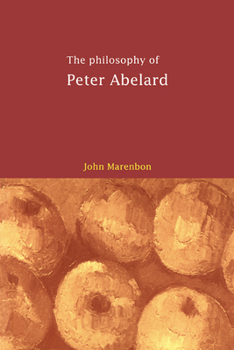The Philosophy of Peter Abelard
Select Format
Select Condition 
Book Overview
This 1997 book offers a major reassessment of the philosophy of Peter Abelard (1079-1142) which argues that he was not, as usually presented, a predominantly critical thinker but a constructive one. By way of evidence the author offers analyses of frequently discussed topics in Abelard's philosophy, and examines other areas such as the nature of substances and accidents, cognition, the definition of 'good' and 'evil', virtues and merit, and practical ethics in detail. Part I discusses Abelard's life and works, and considers problems of chronology and canon (including the question of the authenticity of the correspondence with Heloise). Part II analyses Abelard's ontology, epistemology and semantics, showing how he tried to reconstruct the ideas he had learned from Aristotle, Porphyry and Boethius to fit his presumption that there is nothing which is not a particular. Part III analyses Abelard's ethical theory, showing that it is far wider and more sophisticated than has been believed.
Format:Paperback
Language:English
ISBN:0521663997
ISBN13:9780521663991
Release Date:September 1999
Publisher:Cambridge University Press
Length:396 Pages
Weight:1.40 lbs.
Dimensions:0.9" x 6.0" x 9.0"
Customer Reviews
1 rating
Interesting read.
Published by Thriftbooks.com User , 19 years ago
This book shed new light, enlarged on existing ideas, regarding Abelard as a person and as a philosopher, logician, or whatever shelf you put him on. I especially enjoyed the sections dealing with his theological writings, as I'm not much of a philosophy fan, although that section was well written. Also interesting was the referencing to other writers' opinions of Abelard and his body of work, whether pro or con, through the ages.





